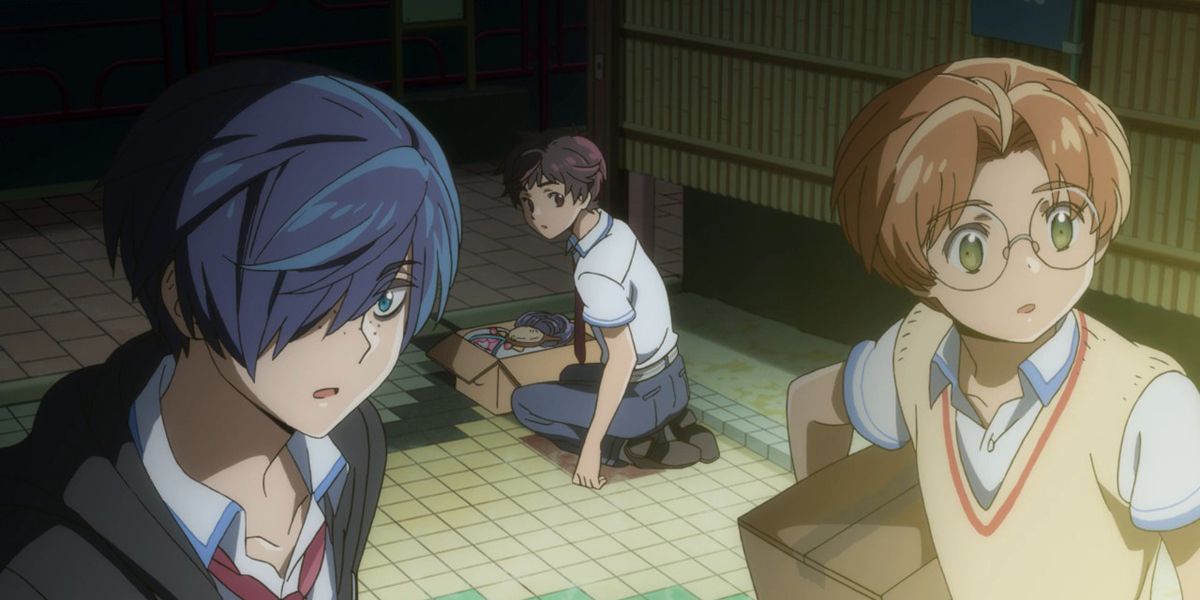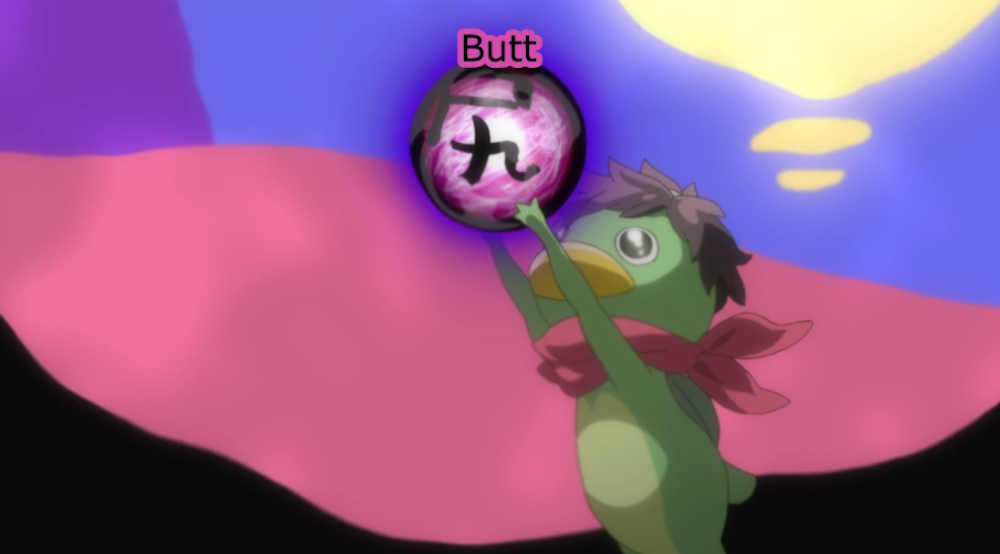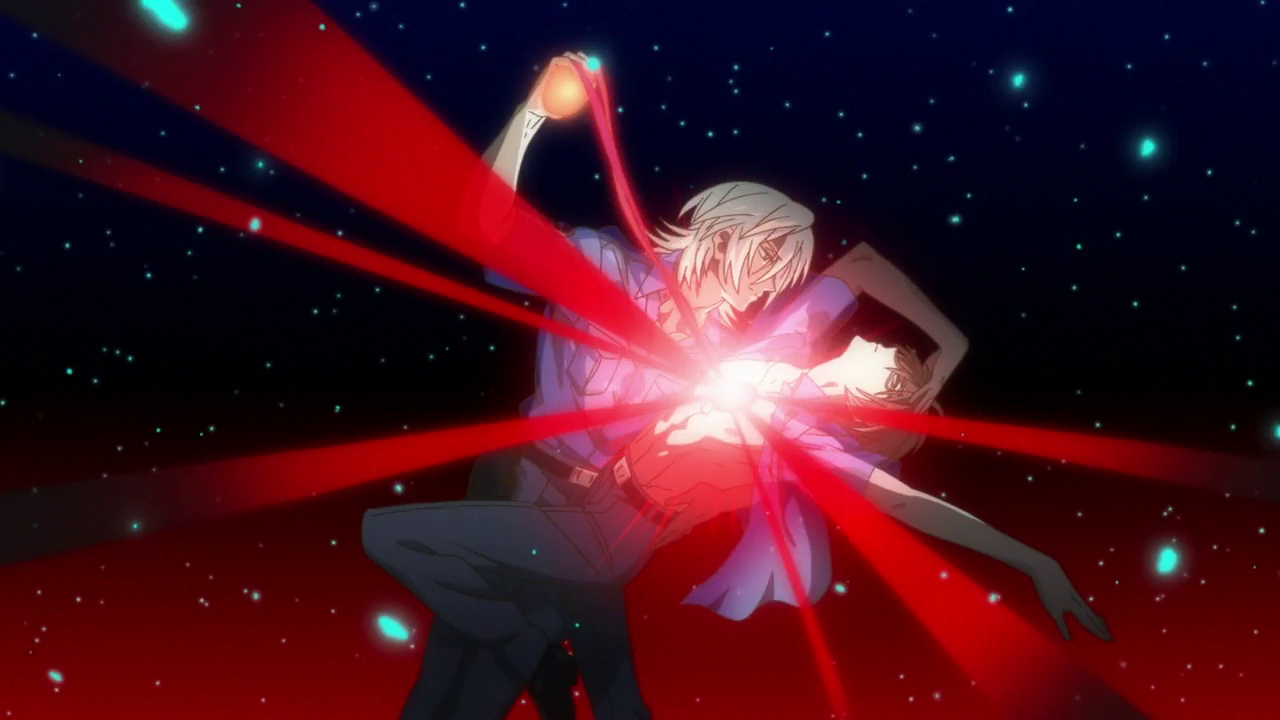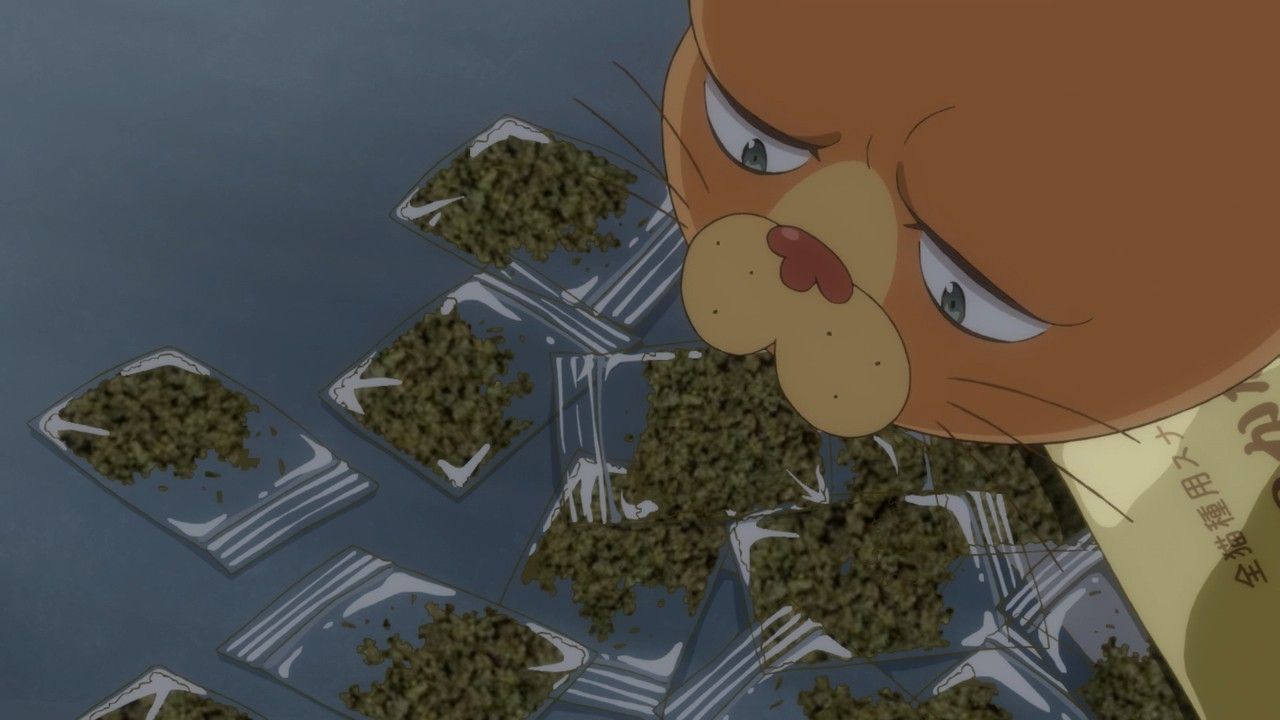Ask any otaku for a list of the best LGBTQ-themed anime and you're almost certain to see at least something directed by Kunihiko Ikuhara. He became famous in the '90s for directing the third season of Sailor Moon, which introduced the romantic pairing of Sailor Uranus and Neptune ("cousins" in the American TV dub) and the darker, more surreal shojo series, Revolutionary Girl Utena. He didn't direct any series in the 2000s, but made a major comeback in our current decade, darker and more surreal than ever, with Mawaru Penguindrum and Yuri Kuma Arashi. All of these series aside from Penguindrum have lesbian or bisexual main characters.
Ikuhara had long expressed interest in doing a "Boys Love" series focusing on queer male relationships but found such pitches harder to sell than "Girls Love" ones. In the wake of Yuri!!! on ICE's breakout success, however, things are changing. YoI production studio MAPPA has been going all in on LGBTQ representation, adapting the classic proto-BL manga, Banana Fish, and featuring transgender characters in Zombie Land Saga and Dororo. MAPPA is now co-producing Ikuhara's long-awaited, gay-themed anime, Sarazanmai.
As of writing, eight of Sarazanmai's 11 episodes have aired on Fuji TV's noitaminA block and streamed internationally on Crunchyroll. FUNimation has released four English dubbed episodes with new episodes streaming on Thursdays. If you haven't started watching Sarazanmai yet, this Pride Month is the perfect chance to catch up and see what all the fuss is about.
So, what is Sarazanmai about? There are two possible ways to answer that. For the high-minded thematic answer, it's primarily about the human need for connection and how desire can either connect or isolate people, focusing primarily on the perspective of three teenage boys forced to confront each other's heaviest secrets. That's the emotional core of the show, and a suitable response for when some older relative wanders into the room and asks: "What the hell are you watching?"
Describe the actual events that happen in Sarazanmai, however, and you quickly understand why said hypothetical older relative is going to be baffled, if not horrified, by this anime. Why? Because it's about kappas (Japanese turtle-like demons) sucking shirikodamas (balls containing the soul) out of butts.
Yes, the action centerpiece of most episodes involves Keppi, the adorable-yet-terrifying ruler of the kappa kingdom, extracting the three lead boys' shirikodamas and transforming them into kappas. When in kappa form, the boys extract shirikodamas from of the butts of "kappa zombies," humans who've turned monstrous from repressed desires. If that wasn't crazy enough, these scenes are all done as musical numbers.
If it all sounds completely insane... it is! There is, in fact, pre-existing mythology about kappas eating butt-souls, but it's not exactly something you'd see in any other anime. Kunihiko Ikuhara is known for making weird anime, but Sarazanmai might be the best spotlight for his strange sense of humor. The funniest thing of all is that he somehow pitched the show without once mentioning butts. Once he got the pitch approved and started injecting the show with increasingly extreme sexual humor, somehow nobody ever stopped him.
Keppi rewards victories over the kappa zombies with magical wish-granting dishes. Earning the dishes also requires the boys to share each other's desires and secrets with one another during the "sarazanmai" process. This is how the show's butt humor and its serious emotional content manage to intersect.
Enta, Kazuki and Toi all have their own reasons for wanting the dishes, and there are many layers to the secrets they've been keeping. Without going into spoiler territory, issues with family, sexuality, gender expression, guilt and even violent crime all come into play.
The show's other most popular characters are Reo and Mabu, two sexy gay cops working on behalf of the otter empire. (Otters are the enemies of kappas.) Their whole deal hasn't fully been explained yet, but they turn people into kappa zombies in a process presented through yet another recurring musical number. They actually have their own prequel manga, Reo to Mabu: Futari wa Sarazanmai, written by Ikuhara and illustrated by Misaki Saito. It has yet to be officially translated but is said to be much lighter and happier in tone than the anime.
The manga reveals that Reo and Mabu are the adoptive parents of the anime's only prominent female character, the idol and TV host Sara Azuma. Sara gives cryptic fortunes, ends every sentence with the word "dish," is trying to reunite with her "prince" and might possibly be a kappa -- or at least not human -- herself.
Also, there's a cat that gets high on weed in a show that's already pretty crazy. And, the weed cat's even crazier by Japanese standards given the country's extreme societal taboos on drugs. Ikuhara somehow got away with everything on this series.
The show's animation, done by MAPPA and Lapin Track, is consistently good. Ikuhara's past works compensated for very limited animation with an outstanding sense of style. Aside from the lavish feature film, Adolescence of Utena, Sarazanmai is by far the most impressive Ikuhara-made anime from a strictly animation-based perspective. Interestingly, Ikuhara's directing style still carries over a lot of time-saving limited animation traits, notably a lot of recycling footage, but this time the footage he's recycling looks better than ever.
As of this moment, Sarazanmai's at an extremely dark point in its story. Nevertheless, the show remains extremely fun and entertaining every week even when the twists rip your heart out.
One note for new viewers: always stick around through the credits. The show's post-credits scenes are some of its most dramatic. (Plus, the ending theme, "Stand by Me" by The Peggies, is a banger anyway.)
It remains to be seen how it all ends. Will our many questions about the otter and kappa kingdoms be answered, or will new questions be raised? How important will the show's allusions to social media and internet-era capitalism end up being? However it ends, the first eight episodes, plus Ikuhara's past work, guarantees we're in good hands. If you like your anime weird, funny, intellectual and/or super gay, you must watch Sarazanmai.




